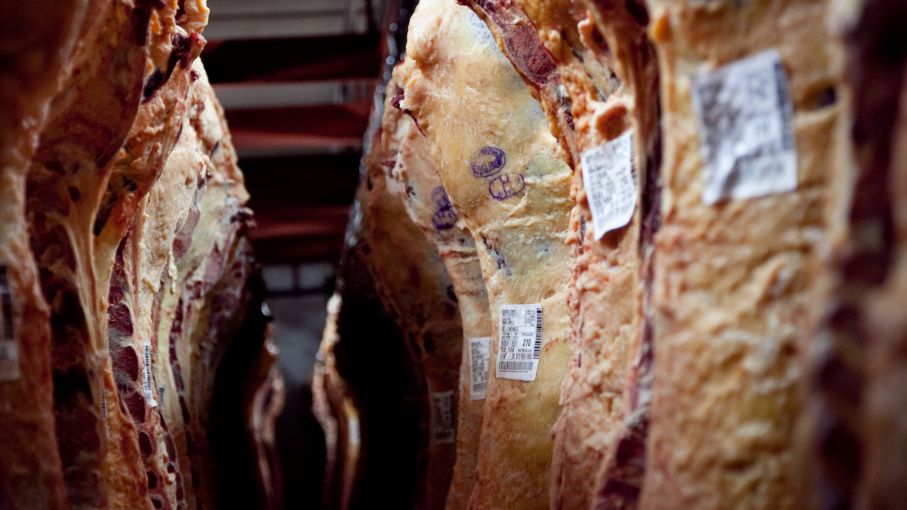Argentina suffered a 7% drop in the volume of its beef shipments in the first quarter, largely due to a slowdown in demand from China, its main buyer.
According to data from the Chamber of Industry and Commerce of Meat and Derivatives (Ciccra) of the South American country, in the first four months of the year, Argentina exported 184,600 tons of beef, with a year-on-year decrease of 7%.
Total income reached a level of 1,077.2 million dollars between January and last April, with a rise of 30.7% year-on-year due to the general rise in international food prices.
According to the Ciccra report, in the first four months of the year, beef exports from Argentina to China totaled 136,545 tons, which represented a year-on-year drop of 9.5%.
This caused the importance of China as the main destination of beef shipments from Argentina to drop to 74% of the total, 2 percentage points less than a year ago.
Due to the effect of rising prices, income from these exports to China rose by 31.8% year-on-year in the first quarter, totaling 669.2 million dollars.
CHINA AND “COVID ZERO”
As warned by the Stock Exchange of the Argentine city of Rosario (BCR) in a recent report, the “zero covid” health policy imposed by the Chinese government “extends more than expected and begins to affect meat imports” from that country, Argentina’s main market.
According to the BCR report, what was initially perceived as a temporary drop in the level of domestic sales and delays in the internal distribution and supply chain, has come to strongly affect the operation of the Chinese port of Shanghai, one of the the main ones in the world and that moves about 20% of the container traffic of the Asian giant.
“The significant congestion of ships and containers stranded due to sanitary restrictions slows down the entire maritime flow, especially affecting the transport of cold food, including meat,” explains the report.
According to data from the Chinese Customs Administration, 192,000 tons of beef entered that country in April, 5% less than what entered in March.
PRICES OF NEW CONTRACTS
According to the BCR, the impact will be greater when the figures for May shipments are available, when delayed shipments of meat from Argentina have already been confirmed in China that “slow down all commercial operations” and a decrease in the values offered by new contracts. .
According to the report, the price references paid for the main cuts that China buys have registered falls of between 3% and 5% in the last month, directly affecting the payment capacity of the Argentine industry, which, in addition, must adapt its entire operation at the current rate of shipments.
“Unfortunately, for the Argentine producer, this slowdown in Chinese demand hits again at the worst time for cow output. As usual, from April to July and August inclusive, there is a seasonal peak in the supply of cows destined for slaughter,” the BCR said.
In any case, the Rosario Stock Exchange observed that, although there is great uncertainty in the short term, “the supply of meat in the world continues to be scarce in the face of projected demand and, under this balance, international prices for beef they’re still extraordinarily good in historical terms.”
According to the most recent data from the United States Department of Agriculture, Argentina is the fifth largest producer and fourth largest exporter of beef in the world. EFE


















